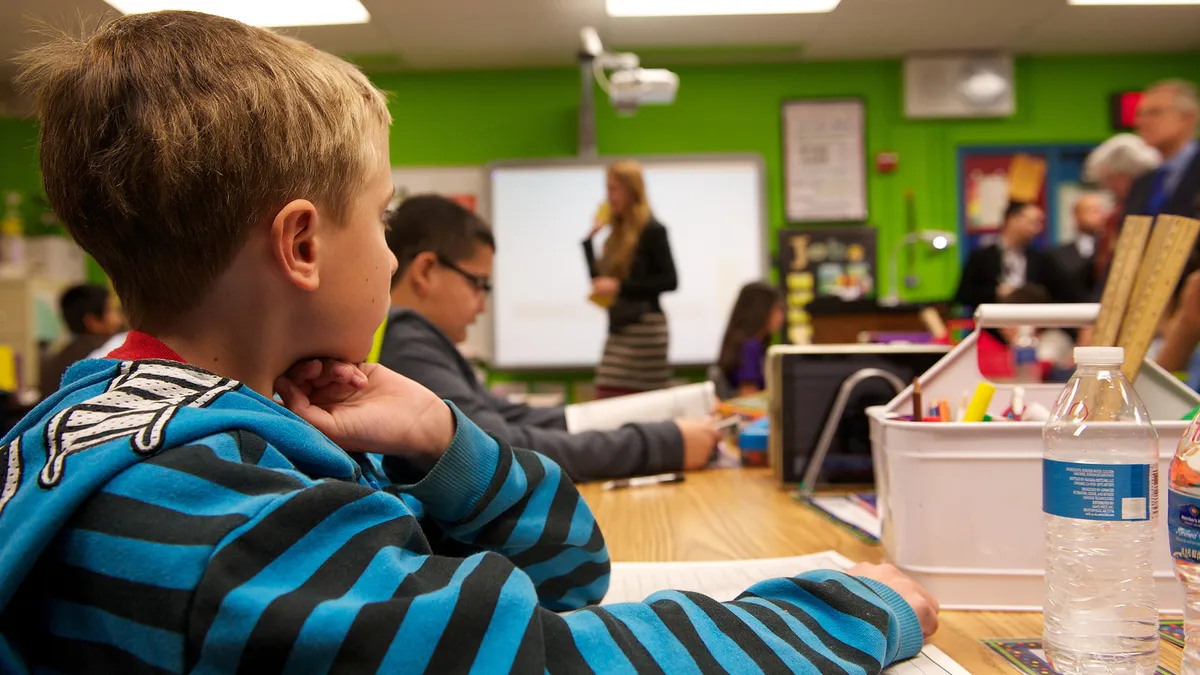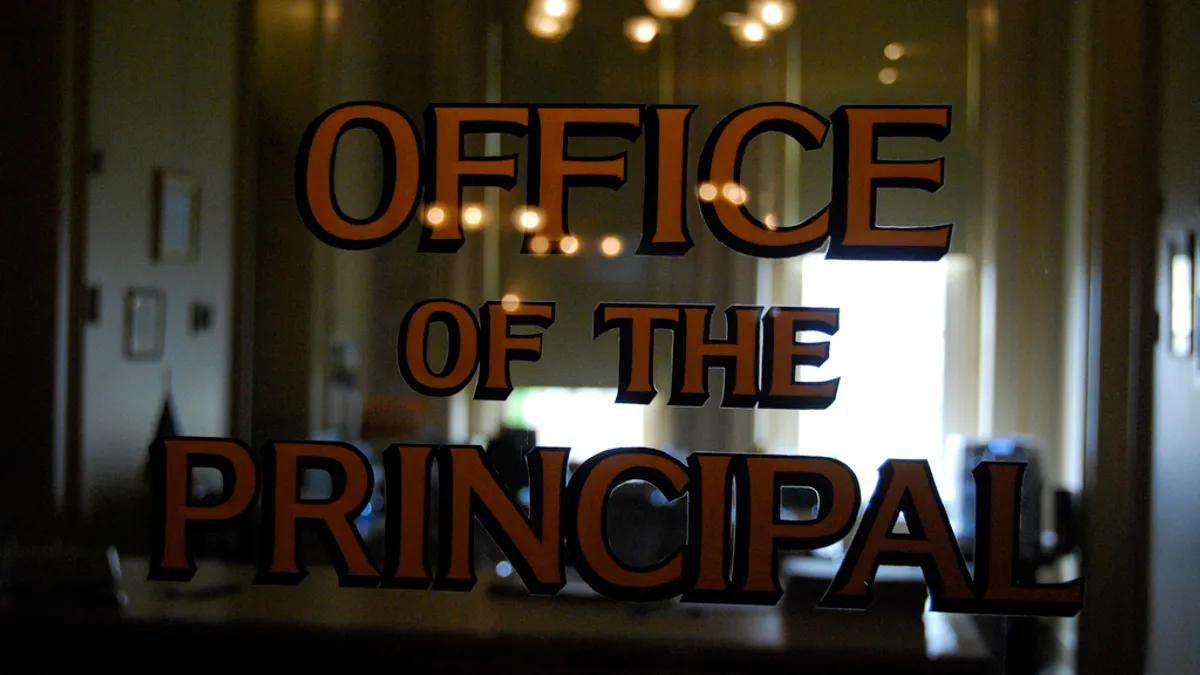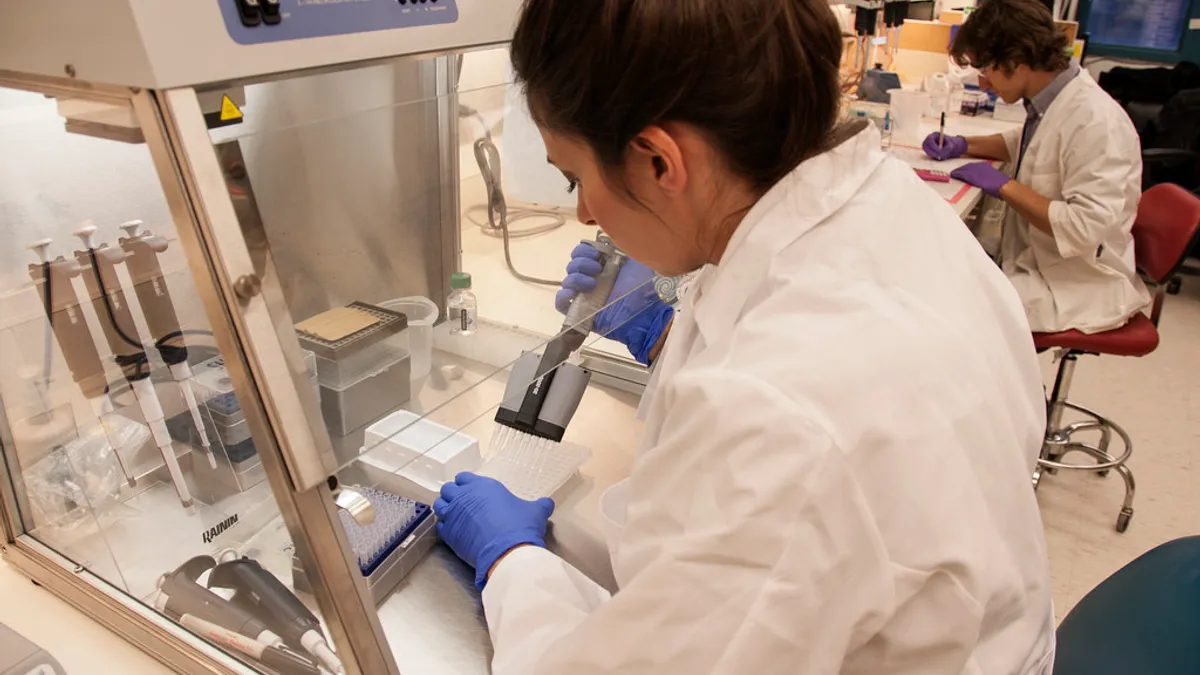K-12: Page 165
-
West Virginia educator introduces kids to tech
One staff member says the state is not generating enough college graduates in STEM fields to fill open computer science jobs.
By Pat Donachie • June 5, 2017 -
Blended learning platforms can help educators with grading challenges
For the use of blended learning platforms to be successful, it is essential that both students and educators are afforded the time and opportunity to train themselves on how to use the platform
By Pat Donachie • June 5, 2017 -
Trendline
Curriculum
Educators are exploring a variety of strategies to improve students’ learning experiences while continuing to navigate ongoing political disputes.
By K-12 Dive staff -
Deep Dive
Michigan school aims for 'transcendent' stage of technology use
According to the T3 framework, Gaylord Community Schools started out in the "translational" stage and have largely moved to "transformational," though "transcendent" is the goal.
By Tara García Mathewson • June 2, 2017 -
Value of game-based learning on the rise
An upcoming study details benefits of short form game-based learning on engagement, critical thinking and performance on assessments.
By Roger Riddell • June 2, 2017 -
'Phigital' students demand new approaches from educators
The students of Generation Z, which consists of children born between 1995 and 2012, take a very different approach to navigating the physical and digital world than their predecessors.
By Pat Donachie • June 2, 2017 -
How should educators begin building the schools of the future?
Two researchers examined schools nationwide and determined eight key takeaways on setting in motion the path toward future models.
By Pat Donachie • June 2, 2017 -
Professor urges teachers to reconsider literacy ed tactics
Not all teaching methods to improve literacy among young students have proven to be successful and teachers should analyze their approach, according to a University of Michigan professor.
By Pat Donachie • June 2, 2017 -
Virtual reality could be poised to disrupt the prison education market
The technology can provide real-world experiences and hands-on training to help provide career certificates prior to release.
By Autumn A. Arnett • June 2, 2017 -
Deep Dive
Attendance, grad rate, enrollment up in Chicago high school with holistic health clinic
The SMART Clinic at Sullivan High School, on Chicago's North Side, has been a key contributor to rapid improvement of student academic performance.
By Tara García Mathewson • June 1, 2017 -
Soft skills benefit from arts education
In a recent webinar, thought leaders addressed the benefits of art in helping students build leadership skills, confidence and critical thinking.
By Roger Riddell • June 1, 2017 -
English learners particularly affected by Texas special ed legislation
Though ELLs increased dramatically in the state over the past decade, the percentage in special education classes dropped after lawmakers pressured districts to classify fewer students as needing services.
By Pat Donachie • June 1, 2017 -
Artist offers class for children anxious from immigration debate
An artist in Philadelphia set up a workshop intending to help the children of parents who are in the country illegally work through their fears and anxieties through art.
By Pat Donachie • June 1, 2017 -
Rise in youth suicide rate concerns doctors, educators
The rate of youth suicide has increased in recent years, dismaying teachers and doctors who are looking for the reasons behind the spike.
By Pat Donachie • June 1, 2017 -
Where are all the teachers of color?
Before Hurricane Katrina, New Orleans stood out among urban areas for its 71% black teaching force, but in 2014, African-Americans made up less than half of all teachers in the city.
By Autumn A. Arnett • June 1, 2017 -
Syracuse Public Schools among districts withholding disciplinary records to colleges
In the years since it made the decision, the district has seen an increase in its graduation rate and the number of students going to college alongside a 50% decline in disciplinary referrals.
By Roger Riddell • May 31, 2017 -
New Orleans charters focus on addressing trauma
Most schools in the city are charters, and five are working to address the effects of trauma on students.
By Pat Donachie • May 31, 2017 -
Oklahoma school districts enact four-day school week
Facing state budget cuts, weeks are getting shorter at more and more districts in the state.
By Pat Donachie • May 31, 2017 -
Addressing emotional needs improves outcomes
Promoting a sense of belonging on campus has a direct impact on GPA and graduation rates.
By Pat Donachie • May 31, 2017 -
Deep Dive
Armed Forces see STEM education as ensuring a bright future
The U.S. military employs thousands in STEM-related pursuits, and the branches are trying to ensure those skillsets are paramount for today's students by promoting them in workshops and mentorships.
By Pat Donachie • May 30, 2017 -
North Carolina districts aren't helping gifted low-income students
School districts have faced difficulty in closing the gap for opportunity into advanced courses between low-income students with strong exam scores and more affluent students.
By Pat Donachie • May 30, 2017 -
Administrative managers can alleviate burden on principals
School principals have increasingly taken on administrative and managerial tasks, but a pilot program in DC Public Schools is looking to mitigate that.
By Pat Donachie • May 30, 2017 -
Gene editing comes to the classroom
Scientific tools like CRISPR Cas9 are increasingly becoming accessible to students, as opposed to being a resource available solely to researchers.
By Pat Donachie • May 30, 2017 -
Can looking abroad close teacher shortages?
Some districts have long found recruiting internationally boosts multicultural learning experiences, but the practice could face hurdles under Trump.
By Roger Riddell • May 30, 2017 -
Chicago magnet principal's tech approach empowers teachers
Due to finances, Wildwood IB World Magnet School had to forgo tech staff — but doing so has facilitated innovation by teacher leaders.
By Roger Riddell • May 26, 2017 -
Space remains an issue as school construction continues post-Recession lag
School construction struggled in the aftermath of the Great Recession, as local tax revenue took a hit and state and federal funding was sparing, making it more difficult for families to find available space.
By Pat Donachie • May 26, 2017








